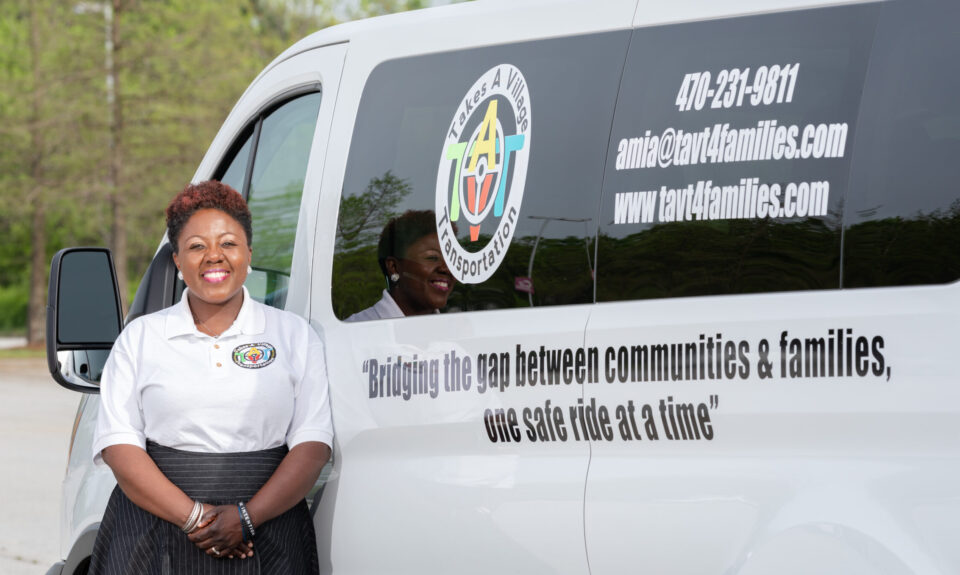Small Businesses Need Your Help, Too
This post originally appeared on the Community Foundation for Greater Atlanta blog.
June 24, 2020
By: Jonny Newburgh, Impact Investment Associate, GoATL Fund
Small businesses are hurting. Black-owned businesses face added challenges.
In good times, entrepreneurship is tough. The most recent Small Business Credit Survey, conducted by the Federal Reserve System in early 2020, found that in 2019 only 57% of small businesses enjoyed profits and 24% operated at a loss. When lockdowns began earlier this year, researchers found that the average small business had less than one month of cash on hand, leaving both small business owners and their employees – 47.5% of the private-sector workforce – at risk.
Clearly, the good times have ended. We are currently living in a global recession during a pandemic. Due to reduced revenues, many businesses are closing permanently and many others are reducing costs, including labor costs, in a bid for survival. Programs designed to offer financial relief, such as those in the federal CARES Act, have been unable to provide the needed support to prevent layoffs and avoid unemployment from reaching historic levels. Worse, federal programs not only overlooked rural, minority and women-owned businesses, but they also did not address pre-existing barriers to capital in communities of color.
Grantmaking for small businesses seeks to address inequities in accessing capital
Knowing the impacts of the dual economic and public health crises would impact the region unevenly, the Community Foundation worked with the United Way of Greater Atlanta to fund small business and nonprofit support organizations that work with and serve primarily non-White entrepreneurs and clients . In part, our support for small businesses is a recognition of the importance of business for social purpose, a point advocated by the Georgia Social Impact Collaborative (GSIC).
To date, the Greater Atlanta COVID-19 Response and Recovery Fund has granted $995,000, and donors have invested an additional $106,600 through the end of May to organizations in metro Atlanta that form the small business ecosystem. These organizations include the Center for Civic Innovation, which has long supported entrepreneurs leading civic enterprises that address inequities in Atlanta, and both of Georgia’s Small Business Administration (SBA) Women’s Business Centers – Access to Capital for Entrepreneurs (ACE) and The Edge.
ACE is also one of metro Atlanta’s leading small business Community Development Financial Institutions (CDFIs), a nonprofit loan fund that has invested over $70 million in metro area small businesses since 1999. ACE is the largest and most impactful small business CDFI in the region. With a mission to invest in disinvested communities, in 2019 ACE invested 45% of its funds in Black-owned businesses, 37% in women-owned businesses and 16% in Hispanic-owned businesses. Meanwhile, according to the U.S. Census, only 6% of small businesses in metro Atlanta are Black-owned, 22% are women-owned and 4% are Hispanic-owned.
As local governments announced lockdowns, ACE began surveying its clients to determine market needs. In just 12 weeks, it provided $8.5M in emergency loan capital, including Paycheck Protection Program loans, for 300 businesses and business advisory support to hundreds more.
Our impact investments provide low-cost, flexible capital to support an equitable recovery
The Community Foundation developed the GoATL Fund, the region’s first impact investment fund, to address these disparities and support wealth building through entrepreneurship in the same communities that ACE works with. CDFIs like ACE need grants to fund technical assistance programs and to provide equity in their loan funds, but they also need investors – like GoATL – to provide capital for relending for longer term social outcomes.
Since June 2018, GoATL has invested $1.25 million in ACE. ACE has used our investment to fund SBA Capital Advantage Program (CAP) loans and to fund loans for economic relief and recovery, such as Paycheck Protection Program (PPP) loans.
In 2019, ACE funded more than 90 loans, 49% of which financed Black-owned businesses. These loans, in turn, retained or created 831 jobs.
As governments across the metro area announced lockdowns due to the pandemic, ACE began working with local governments, development authorities and investment partners to develop new financing tools, increase available capital and offer greater flexibility to borrowers until the economy recovers.
But capital markets are racist, and they require anti-racist innovations
Having recently committed to a strategic plan that advances equity of opportunity , the Community Foundation also recognized that CDFIs cannot fill every gap in the market – and that an inequitable recovery is no recovery at all.
That’s why the Greater Atlanta COVID-19 Response and Recovery Fund granted $250,000 to the Atlanta Wealth Building Initiative (AWBI), which has long been working on alternative models of investment, such as character-based lending. AWBI was also quick to offer grants to small businesses in Southwest, Southeast and Northwest Atlanta to ensure that small businesses, especially those owned by people of color, do not fail as a result of COVID-19.
Pictured: Takes a Village Transportation, ACE loan recipient

